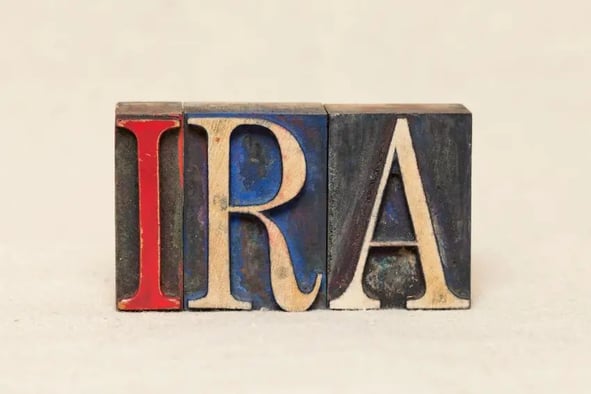
Deciding to open an IRA is an important step in your retirement planning. Before you are ready to deposit funds, however, you have some additional decisions to make:
1. Which type of IRA will you open?
2. How much will you invest?
3. How will you invest?
4. What type of IRA provider will you choose?
1. Which Type of IRA will you Open?
In choosing which type of IRA to open, the first factor is eligibility. Traditional IRAs are available only to those under age 70 ½. Roths, on the other hand, are restricted to those who fall below current income guidelines. In 2023, for example, a married couple filing jointly can make the maximum contribution only if their income is below $218,000. The limit for a single filer is $138,000. For complete income guidelines, see the IRS website.
Once you determine your eligibility, the next question, if you are eligible for both types, is which type of IRA is likely to provide you the greatest benefit. Contributions to traditional IRAs are tax deductible, but withdrawals are taxed. Contributions to Roths are made after tax, but withdrawals are tax-free. Which structure works to your greatest benefit depends largely upon how your current tax rate compares to the tax rate you anticipate in retirement.
The third factor you will want to consider is the availability of the funds you deposit into your IRA. Traditional IRA funds are eligible for penalty-free withdrawal only after the age of 59 ½ or in specific circumstances that qualify as exceptions to early withdrawal penalties. Contributions to a Roth IRA, on the other hand, are accessible at any time and for any reason.
2. How Much will you Invest?
Financial institutions often set minimum investment amounts for opening an IRA. Deciding how much you will invest before you begin to shop may narrow down the range of institutions you will consider. Remember that traditional IRA funds are subject to penalty for early withdrawal, so if you have chosen a traditional IRA, be sure to invest only what you are fairly certain you can live without until retirement. The maximum annual contribution for IRAs in 2023 is $6,500, or if you are 50 or older, $7,500.
3. How will you Invest?
You will need to decide what level of risk is right for your investments. Keep in mind that investments with little to no risk have a very modest rate of return, which may not keep pace with inflation. Investments with higher rates of return, on the other hand, tend to carry more risk. Generally speaking, younger investors (those with more years before retirement) are advised to incorporate more risk in their portfolios because they have more time to ride out market fluctuations and can take advantage of greater growth potential. Investors who are nearing retirement are usually counseled to reduce risk in their portfolios. An independent financial advisor can help you determine what level of risk is most appropriate for you at this time in your life.
4. What Type of IRA Provider will you Choose?
Banks, mutual fund companies, insurance companies, and brokerage firms are all IRA providers. Each has its own strengths and drawbacks:
Banks tend to accept smaller initial deposits and low fees. They also offer limited investment choices, usually CDs and money market accounts.
Mutual fund companies and brokerage firms offer a wider range of investment choices. A full-service brokerage firm will cost you more in fees. Lower-cost options include no-load index mutual funds and, for those who like to make their own investment choices, discount brokerages.
Many insurance companies offer IRAs that utilize annuities. An annuity is a specialized kind of investment that may serve the needs of certain investors. If you are considering investing in an annuity, speak with a qualified and independent financial advisor (one who does not earn commissions on annuity sales) to determine if it is an appropriate choice for you.
Be sure that you understand all fees charged by any IRA provider that you are considering. Minimizing the costs associated with your IRA is one of the most effective ways you can maximize your savings. Boelman Shaw Tax & Financial Planning in Des Moines can help you understand the costs and benefits of a wide variety of investment options for your IRA. Contact us for a free consultation.
Tax and accounting services provided through Boelman Shaw & Company, LLC. Advisory services provided through BSC Capital Partners, LLC a state of Iowa registered investment advisor.
